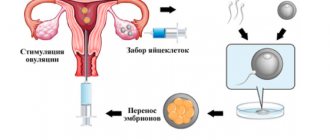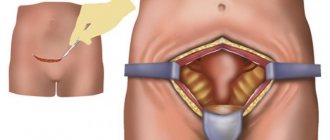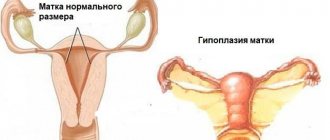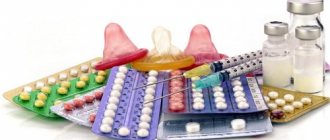Science explains...
Against the background of a hormonal explosion, which occurs in girls at the age of 11-12, and in boys at 12-13, the processes of excitation in the cerebral cortex proceed very quickly, and the processes of inhibition - slowly. This means that teenagers are distracted, turned on and irritated by every little thing, but it’s not easy for them to stop and slow down. They cling to words and people, although it’s high time to say: “Let’s go!”
Of course, in such a state it is difficult to concentrate on lessons, concentrate, and not be distracted. And their memory often fails because of the same thing: when it’s interesting, everything is remembered easily, but when it becomes boring, nothing stays in the head!
At this time, bones and muscles grow unevenly, all movements become uncoordinated and awkward. No matter how you sit, everything is uncomfortable, and adults say: “Don’t spin, don’t fall apart in your chair.” It’s especially hard for boys; they stretch out more than girls. Therefore, their bone fragility is higher at this age. They are more likely to break arms and legs. And they have a greater need to stretch out on the sofa, to just lie down when they come home. And we shout: “Why are you lying around, sit down and do your homework!”
The heart grows and... it hurts, at times it beats quickly, the blood does not deliver the required amount of oxygen to the brain. The head thinks worse and gets tired faster. Hurts. Lack of oxygen can lead to fainting. Girls are especially susceptible to fainting. They are more likely to suffer from high blood pressure. The peak of such juvenile hypertension occurs at 13–14 years of age. And we, adults, as luck would have it, do not allow them to fully move and breathe. At school, teenagers hear: “Don’t mess around in class! There’s no point in running out into the yard during recess and carrying dirt to school!” At home we say: “Where did you go for a walk? The lessons are not done yet!
Hormonal storms cause a teenager's emotions to change as often as pieces of glass in a kaleidoscope. Either everything is interesting to him and the teenager works with joy, or suddenly he gets irritated for no reason, is ready to cry, or simply falls into apathy. Girls are especially emotionally unstable; their mood is associated with the establishment of the menstrual cycle.
The play of hormones forces young ladies to plunge into the world of women's interests. Now every girl's main concern is how she looks, whether her breasts are too small or not too large, and whether boys pay attention to them? All thoughts about the sciences, except for the “science of tender passion,” fade into the background. Boys are less concerned with their appearance, but their “sore topic” is height. Which one is taller? What can you do to grow even bigger? At this time, the digestive system reacts very painfully to prolonged emotional and physical stress. Fatigue and stress cause gastroenterological diseases in adolescents no less often than dry food.
Is a teenager a victim of raging hormones?
Yes.
Grace Craig cites the following common emotional manifestations of a hormonal crisis:
- frequent mood changes:
- depression;
- restlessness and poor concentration;
- irritability;
- impulsiveness;
- anxiety;
- aggression and problem behavior.
No.
A teenager’s condition is influenced by many other factors.
- family relationships;
- status among teenagers;
- level of academic achievement;
- ability to build a long-term perspective, etc.
... and advises
How can we help these outwardly almost adult, often aggressive and so vulnerable children?
Psychologists and teachers advise:
● There is no need to excite and irritate teenagers with an orderly tone; try to communicate as equals. They no longer look up to us, they perceive us now critically and want to stand next to us on the same level.
● Give teenagers the opportunity to move more - they should spend at least three hours a day moving. They now simply need physical education and sports. Right now flexibility, dexterity, good coordination, and plasticity of movements are being honed. How the teenage years pass will determine whether our children will become graceful or whether clumsiness in movement will remain with them for the rest of their lives. Understand that their body is uncomfortable for teenagers now, don’t laugh at their clumsiness, don’t scold them when they spin around during class and always try to lie down on the sofa.
● Now they must consume more calcium in their diet than adults, especially boys, they need proteins, phosphorus, vitamin D...
● The physiological load on the body of a teenager is higher than that of a primary school student! And he sleeps much less, considering himself already an adult. A teenager should sleep at least 9 hours! And it would be nice to take another hour during the day.
● You must take a walk every day. The body simply needs oxygen! And you need to study lessons in a ventilated room.
● Pay more attention to your difficult child, do not limit your communication only to questions: “Have you eaten? What are your grades at school? Teenagers only pretend that they no longer need us. In fact, our attention, our friendship, our opinion, expressed kindly and tactfully, is very important to them. In their circle they quote us!
We all want our children to learn as much knowledge as possible in their youth. We want them to study responsibly and well. But their workload at school is such that it is impossible to learn everything that is asked. Moscow Pedagogical State University conducted a study and found out: in order for a 7th grade student to do everything that is assigned to him in all subjects every day, he needs to assimilate on average every day the information presented on 26 pages of the textbook, and, mind you, not only assimilate, but also be ready to reproduce it the next day.
An experiment with volunteer excellent students, intellectually well-developed children, showed that it is possible to complete such a volume of tasks only if, upon returning from school, you immediately sit down to your homework and do them until one in the morning.
An unreasonable school load forces a child to treat lessons selectively: do some, skip some, skim some...
You can't study all the sciences. But we need to raise our children not only smart, but also healthy and happy. I would really like to!
Causes
Disturbances in the functioning of the thyroid gland can provoke hormonal imbalance in teenage girls. In practice, an increase or decrease in the level of hormones produced by this gland leads to an acceleration or delay of puberty. The cause of hormonal imbalance in each specific case must be sought based on the individual characteristics of the body.
First of all, pay attention to hereditary predisposition. The likelihood of hormonal imbalance is especially high in those girls whose mothers have already encountered a similar problem.
Severe stress can cause disturbances that affect hormone synthesis. Some medications can affect the body in such a way that hormonal imbalance occurs. Less commonly, hormonal disorders are caused by pathologies of the genital organs and chronic diseases that directly and indirectly affect the functioning of the endocrine system.
By the way
Young and early. Teenagers who begin sexual activity early are more prone to depression and suicide than their peers, say American psychologists.
According to the results of a study in which 2,800 schoolchildren from 14 to 17 years old took part, about 25% of sexually active girls consider themselves unhappy. The same sensations are described by only 8% of girls who are not yet sexually active.
About 14% of sexually active girls attempted suicide. Among their peers, who were not yet familiar with carnal love, attempts to commit suicide were observed in only 5% of cases.
Young men who are sexually active are also more prone to suicide: 6% of them tried to give up their lives, while among those who do not have sexual intercourse this figure is 6 times lower.
Hormonal imbalance in boys
If the balance of hormones in a boy’s body is incorrect, if he lacks testosterone, sexual development is delayed.
Secondary sexual characteristics do not develop, the voice does not break, and growth remains low. Some teenage boys experience slight enlargement of the mammary glands. This may be a natural and physiological phenomenon that will go away over time, or it may be a symptom of an adrenal or testicular tumor. With elevated testosterone levels, a boy experiences premature signs of puberty. There is a rapid development of the musculoskeletal system, hair growth in the groin, the penis enlarges, but the testicles still remain small. The physical development of a teenager does not correspond at all to his psycho-emotional development.
Does temperature change with hormonal changes during adolescence?
In the vast majority of cases, hormonal changes in adolescence and temperature are not related. Rarely, this symptom occurs with hypothalamic syndrome. Since the hypothalamus is responsible for thermoregulation, its increased activity during puberty causes the temperature to rise to 37.1-37.3 degrees. During an exacerbation (crisis), it reaches 38-39 degrees.
Typical signs:
- increased in the morning, decreased in the evening;
- does not decrease with conventional antipyretics, but decreases when taking diuretics;
- the patient has signs of vegetative-vascular dystonia - instability of pressure, pulse, sweating;
- often increased body weight.
What happens during puberty?
During puberty, a girl's reproductive system changes in ways that prepare her for the birth of a child.
This process occurs in several stages:
- The girl's mammary glands begin to enlarge. This process can take up to 5 years until the breasts reach their final size and shape. Therefore, a teenager should not worry if the bust currently does not correspond to the imagined ideal appearance.
- Hair begins to grow in the armpits and pubic areas.
- At this time, very rapid growth of the body occurs, the second fastest after the infancy period of life.
- Body shape changes. Weight increases, small fat deposits appear on the hips and abdomen. During this period, it is harmful to follow low-calorie diets.
- The smell of the skin changes, increased sweating appears in the armpits.
- Acne appears on the face, chest, and back.
- Vaginal discharge appears or changes.
- Teenagers experience changes in emotions and sexual sensations.
- Menarche occurs - the first menstruation, a regular menstrual cycle is established (read about this important period in a girl’s life at the link).
Diabetes makes you look younger?
Modern children have become shorter, but fatter, because they do not eat properly, get sick more often and are nervous, to say the least - mentally unbalanced. These are the gloomy conclusions reached by specialists dealing with children’s health at the All-Russian Forum “Health of the Nation,” held in Moscow this spring. The results of recent scientific research have made it possible to assess the real state of children's health, which is very different from official statistics.
Risky inheritance Diabetes mellitus type I. The risk of inheriting insulin-dependent diabetes mellitus, so-called juvenile diabetes, is low. The probability of the disease in a child: 2-3% - if the mother is sick 5-6% - if the father has diabetes 15-20% - if both parents are sick 10% - this is the frequency of diabetes among brothers and sisters with diabetes. Type II diabetes mellitus is caused by a much stronger hereditary predisposition: 40-50% - if one of the parents is sick. True, the disease usually occurs after the age of 40. 50-80% - if the parents are also diagnosed with obesity in combination with type II diabetes, the so-called diabetes mellitus of obese adults.
According to the Scientific Center for Children's Health of the Russian Academy of Medical Sciences, only 2% of school graduates can be considered healthy. Over the past few years, there have been 8.5% fewer children with normal physical development. A generation of relatively healthy children is growing, or, as doctors say, “healthy patients.” The term “retardation” appeared, that is, a slowdown in physical development and the formation of functional systems in children and adolescents.
And the number of endocrine disorders in children has increased significantly over 15-20 years. This is due, firstly, to the epidemic of our century - obesity. Secondly, with the increasing number of cases of diabetes (both insulin-dependent - type I diabetes, and type II diabetes, which was previously called diabetes of the elderly), it has become significantly younger and is now increasingly beginning to develop in children.
Naturally, this is connected with both ecology and urbanization, that is, with the costs of city life. And, of course, with food. On the one hand, children began to eat more, but on the other hand, this is not always what they need. Often, even at home, children are treated to fast food and sweet drinks - not only carbonated drinks, but also sweetened “morsiki” and “kompotiki”.
In addition, children move less, and this contributes to the development of functional disorders.
But the main risk factor is family history. True, if there are cases of diabetes in the family, this does not mean that the child will definitely get sick, but he is at risk. This means that he needs special supervision from an endocrinologist (2-3 times a year) and nutritional correction. Nowadays there are a lot of cases of obesity in children - I and II degrees! And a violation of fat metabolism leads to a violation of carbohydrate metabolism and the development of diabetes.
Typical mistakes of parents:
- Overfeeding a child. If the child is healthy, but thin and has poor appetite, this may be a manifestation of gastroenterological diseases or increased excitability. This means that it makes sense to show him to a neurologist and gastroenterologist, but just not force him to eat, making painful hysterical performances out of feedings.
- Unhealthy diet: foods containing trans fats (cookies, chips) and excess sweets. The child's diet must be balanced.
- Failure to regularly check the child's body mass index.
- Feeding newborns throughout the day without stopping at night. A common mistake mothers make is to breastfeed their baby at night every time he wakes up. So he has a need to eat and drink all the time. But the number of fat cells is formed precisely during this period of development - before the age of two years!
Alarming symptoms:
- It takes a long time for a child to recover from adenoviral infections, influenza or childhood illnesses.
- Feels thirsty often and drinks too much liquid.
- He urinates frequently and profusely.
- He remains in a state of lethargy and irritability for a long time.
- He begins to lose weight noticeably.
These are possible signs of diabetes. Therefore, you should immediately check your blood glucose levels.
Symptoms
Symptoms of hormonal imbalance in teenage girls are not always obvious; sometimes signs of incipient pathology are mistaken for symptoms of completely different diseases.
Signs of hormonal imbalance:
- Girls experience increased sweating.
- Patients become overly irritable.
- Very often, when there are hormonal imbalances, there are skin problems.
- If there are problems with hormone synthesis, growth may stop or growth may significantly exceed normal. The same can be said about body weight, which in some cases may exceed the norm or correspond to extreme thinness.
- In girls, due to hormonal imbalance, the development of the mammary glands is disrupted.
- If there is a hormonal imbalance, periods may be completely absent or their cycles may be disrupted.
- Hormonal imbalance can also affect the duration of monthly bleeding.











